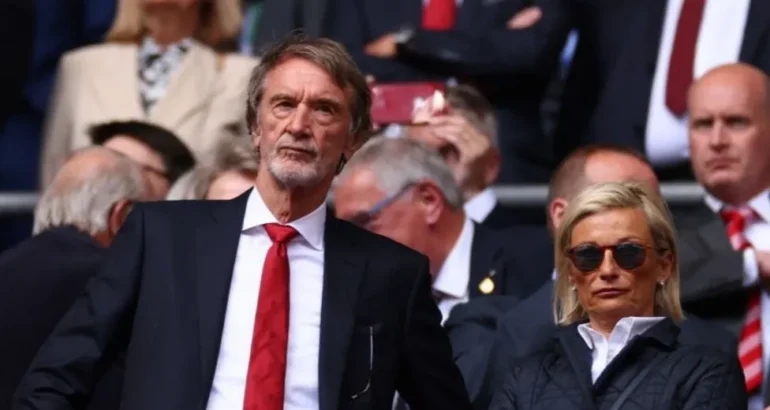Manchester United co-owner Sir Jim Ratcliffe is opposed to the introduction of a football regulator and says he can understand why Manchester City are challenging the Premier League’s rules.
Ratcliffe has taken a 27.7% stake in United but has effectively been allowed to control day-to-day operations by the Glazer family.
He has appointed a new technical director in Jason Wilcox, with Omar Berrada set to take over as chief executive next month. United will install Dan Ashworth as sporting director once a compensation deal is agreed with Newcastle.
Ratcliffe also oversaw the decision to stick with manager Erik ten Hag, even though United spoke to a number of potential replacements.
In addition, he has signed off on a £50m upgrade of the club’s Carrington training complex, with work under way that will force the first-team out of the main building for large parts of next season.
However, while he is concentrating on issues at United, Ratcliffe is also aware of wider problems facing the game, with a new government-backed football regulator top of the list.
“If you’ve got a government regulator, at the end of the day they will regulate and that won’t be good,” Ratcliffe said in an extensive interview with Bloomberg, external.
The plans were part of the Football Governance Bill, which was halted when the General Election was called but both Conservative and Labour parties have committed to it if they form the next government.
Premier League chief executive Richard Masters has previously warned of the potential for ‘unintended consequences’ resulting from the introduction of a regulator, which he has said could threaten the league’s status as the most lucrative in the world.
It is one of a number of regulatory issues facing Premier League clubs, who must comply with current profit and sustainability rules for at least another season.
City are currently challenging the legality of the league’s associated party transaction (APT) rules, which determine whether sponsorship deals are financially ‘fair’.
The Premier League champions City are not on their own in believing those rules should be scrapped.
“I can understand why they are challenging it,” said Ratcliffe. “You can understand why they would say that they want an open market, a free market.”
The Premier League has put talks with the Football League over a ‘New Deal’ for funding on hold until it had sorted its own revised financial regulation. Many top-flight clubs are against the concept of handing out additional funds to what in some instances could be viewed as rivals.
At its annual meeting earlier this month, clubs agreed to trial an ‘anchoring’ plan, which would link spending to the revenues of the club that finishes at the bottom of the table.
Ratcliffe is not a fan, and feels there is too much regulation generally.
“What would anchoring do?” he said. “The last thing you want in the Premier League is for the top clubs not to be able to compete with the likes of Real Madrid, Barcelona, Bayern Munich, and PSG.
“We’ve got more accountants than we’ve got sporting people at Manchester United. If you’re not careful, the Premier League is going to finish up spending more time in court than it is thinking about what’s good for the league.”


